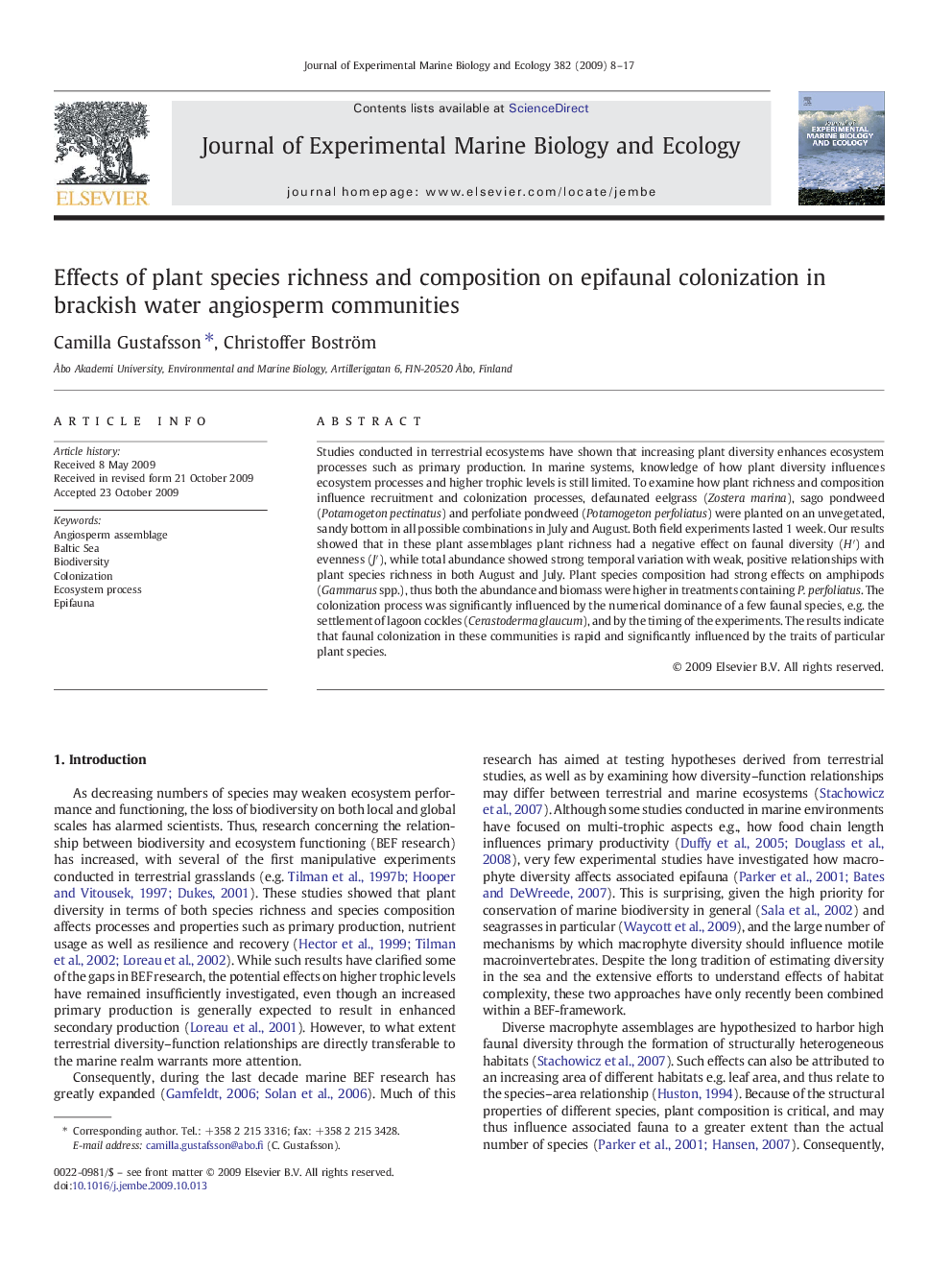| Article ID | Journal | Published Year | Pages | File Type |
|---|---|---|---|---|
| 4396700 | Journal of Experimental Marine Biology and Ecology | 2009 | 10 Pages |
Abstract
Studies conducted in terrestrial ecosystems have shown that increasing plant diversity enhances ecosystem processes such as primary production. In marine systems, knowledge of how plant diversity influences ecosystem processes and higher trophic levels is still limited. To examine how plant richness and composition influence recruitment and colonization processes, defaunated eelgrass (Zostera marina), sago pondweed (Potamogeton pectinatus) and perfoliate pondweed (Potamogeton perfoliatus) were planted on an unvegetated, sandy bottom in all possible combinations in July and August. Both field experiments lasted 1Â week. Our results showed that in these plant assemblages plant richness had a negative effect on faunal diversity (Hâ²) and evenness (Jâ²), while total abundance showed strong temporal variation with weak, positive relationships with plant species richness in both August and July. Plant species composition had strong effects on amphipods (Gammarus spp.), thus both the abundance and biomass were higher in treatments containing P. perfoliatus. The colonization process was significantly influenced by the numerical dominance of a few faunal species, e.g. the settlement of lagoon cockles (Cerastoderma glaucum), and by the timing of the experiments. The results indicate that faunal colonization in these communities is rapid and significantly influenced by the traits of particular plant species.
Related Topics
Life Sciences
Agricultural and Biological Sciences
Aquatic Science
Authors
Camilla Gustafsson, Christoffer Boström,
